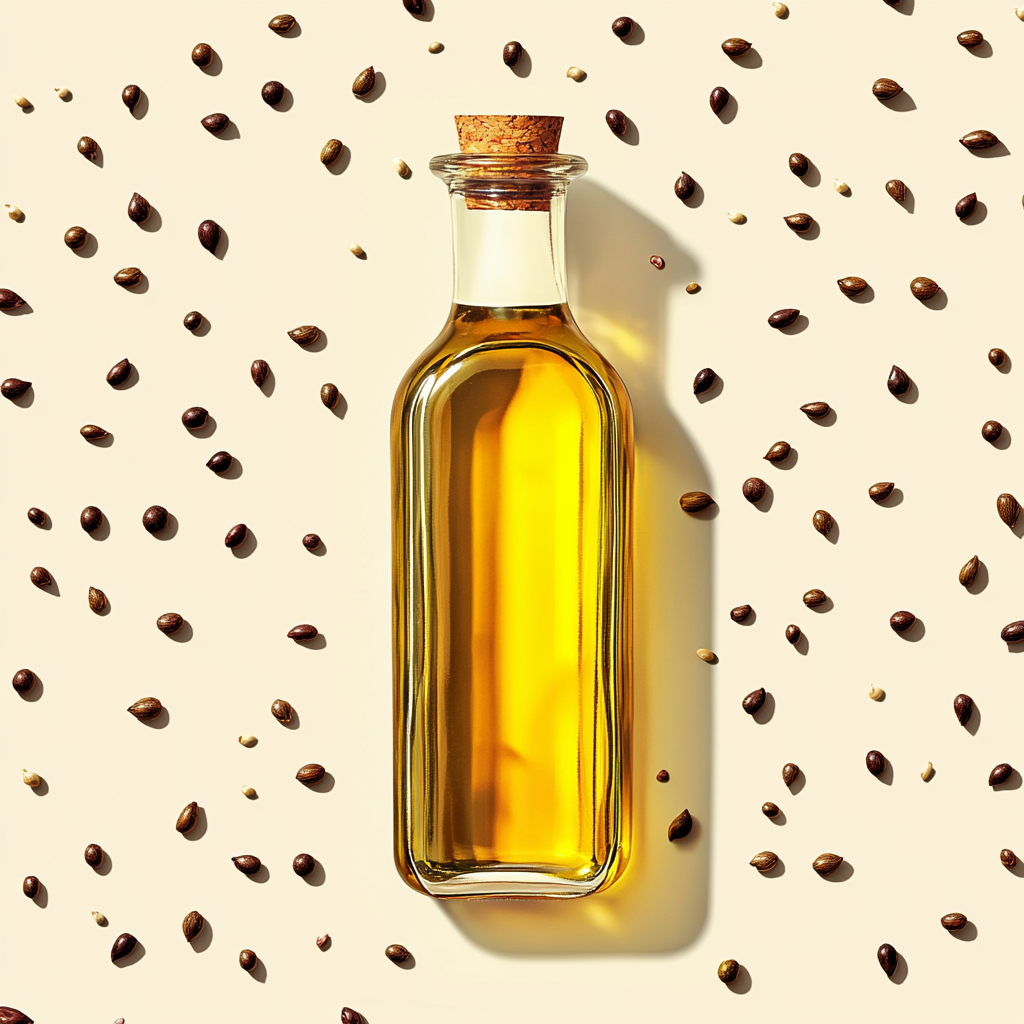In recent decades, the food industry has undergone a significant transformation, moving away from traditional, natural fats like butter and lard to highly processed seed oils. These most unhealthy seed oils are extracted through industrial methods involving high heat, chemical solvents, and extensive refining, making them far removed from the wholesome fats our ancestors consumed. As a result, these oils have raised concerns among health experts due to their potential to cause inflammation, disrupt metabolic health, and contribute to chronic diseases. In this article, we’ll explore the eight most unhealthy seed oils, highlighting their potential dangers and where they’re commonly found in the food supply.
1. Soybean Oil
Soybean oil is one of the most widely used vegetable oils in the world, thanks to its cheap production cost and versatility. It’s commonly found in processed foods, margarine, salad dressings, and snack foods.
Health Concerns
Soybean oil is one of the most unhealthy seed oils due to its high omega-6 fatty acid content, which can promote inflammation when consumed in excess, contributing to conditions like heart disease, obesity, and diabetes. Moreover, most soybean oil is derived from genetically modified soybeans, raising concerns about potential long-term health effects. The refining process can also result in the formation of trans fats, which are linked to a higher risk of heart disease.
Common Uses
Processed foods, fried foods, margarine, salad dressings, and packaged snacks.
2. Corn Oil
Corn oil is another cheap and widely available seed oil, often marketed as a heart-healthy option due to its low saturated fat content. It’s used in cooking, frying, and as an ingredient in many processed foods.
Health Concerns
As one of the most unhealthy seed oils, corn oil is high in omega-6 fatty acids, contributing to the imbalance of fatty acids in the modern diet. This imbalance can lead to chronic inflammation and an increased risk of various diseases. Additionally, the industrial refining process of corn oil can produce harmful byproducts, including trans fats and oxidized compounds.
Common Uses
Fried foods, margarine, baked goods, salad dressings, and snack foods.
3. Canola Oil
Canola oil, derived from the canola plant (a type of rapeseed), is often promoted as a healthier alternative due to its lower saturated fat content and higher omega-3 content. However, the truth is more complicated.
Health Concerns
Although canola oil contains omega-3 fatty acids, it is still considered one of the most unhealthy seed oils because it also has a high omega-6 content, which can contribute to inflammation. The refining process, which includes bleaching and deodorizing, can damage the delicate omega-3 fats, making them less beneficial. Moreover, canola oil is often partially hydrogenated, leading to the presence of trans fats.
Common Uses
Cooking oil, salad dressings, baked goods, and processed snacks.
4. Sunflower Oil
Sunflower oil, extracted from sunflower seeds, is commonly used for frying and in processed foods due to its light flavor and high smoke point.
Health Concerns
Sunflower oil is one of the most unhealthy seed oils because it is extremely high in omega-6 fatty acids, which can promote inflammation and negatively impact cardiovascular health. When heated, sunflower oil can produce aldehydes, toxic compounds linked to an increased risk of cancer and other diseases.
Common Uses
Fried foods, snack foods, margarine, and processed foods.
5. Cottonseed Oil
Cottonseed oil is a byproduct of cotton farming, traditionally used in the industrial sector but now commonly found in processed foods.
Health Concerns
Cottonseed oil ranks among the most unhealthy seed oils due to its high levels of omega-6 fatty acids, contributing to the pro-inflammatory effects seen with other seed oils. It also contains natural toxins like gossypol, which must be removed during processing. Despite this, trace amounts may remain, raising safety concerns. Additionally, cotton is not classified as a food crop, meaning it can be treated with pesticides not approved for food use.
Common Uses
Processed snack foods, margarine, and salad dressings.
6. Grapeseed Oil
Grapeseed oil is often marketed as a healthy option due to its high content of polyunsaturated fats and antioxidants. However, the reality is more concerning.
Health Concerns
As one of the most unhealthy seed oils, grapeseed oil is high in omega-6 fatty acids, which can disrupt the balance of fats in the diet and promote inflammation. The extraction process typically involves the use of chemical solvents and high heat, which can degrade the oil and produce harmful byproducts.
Common Uses
Cooking oil, salad dressings, and as a base in various processed foods.
7. Rice Bran Oil
Rice bran oil, extracted from the outer layer of rice grains, is often used in Asian cooking and has gained popularity due to its high smoke point.
Health Concerns
Rice bran oil is considered one of the most unhealthy seed oils because it contains a significant amount of omega-6 fatty acids, contributing to the same inflammatory issues as other seed oils. Additionally, the refining process can introduce harmful compounds, including trans fats and oxidized lipids. The oil may also contain traces of arsenic, a naturally occurring toxin found in rice.
Common Uses
Stir-frying, deep frying, snack foods, and margarine.
8. Safflower Oil
Safflower oil, derived from the seeds of the safflower plant, is often used in cooking and as an ingredient in various processed foods.
Health Concerns
Safflower oil is one of the most unhealthy seed oils due to its high omega-6 fatty acid content, making it particularly problematic in terms of promoting inflammation and contributing to chronic diseases. The refining process further exacerbates these concerns, as it can result in the formation of harmful trans fats and other byproducts.
Common Uses
Cooking oil, salad dressings, margarine, and processed foods.
Natural Oils Over Industrial Seed Oils!
The shift from traditional fats to most unhealthy seed oils has introduced a range of health concerns, primarily due to their high omega-6 content, potential for oxidation, and the toxic byproducts formed during processing. While these oils are ubiquitous in modern food production, it’s important to be aware of their potential dangers and consider healthier alternatives. Reducing your intake of these most unhealthy seed oils by choosing natural fats like butter, coconut oil, and olive oil can be a crucial step toward improving your overall health.

